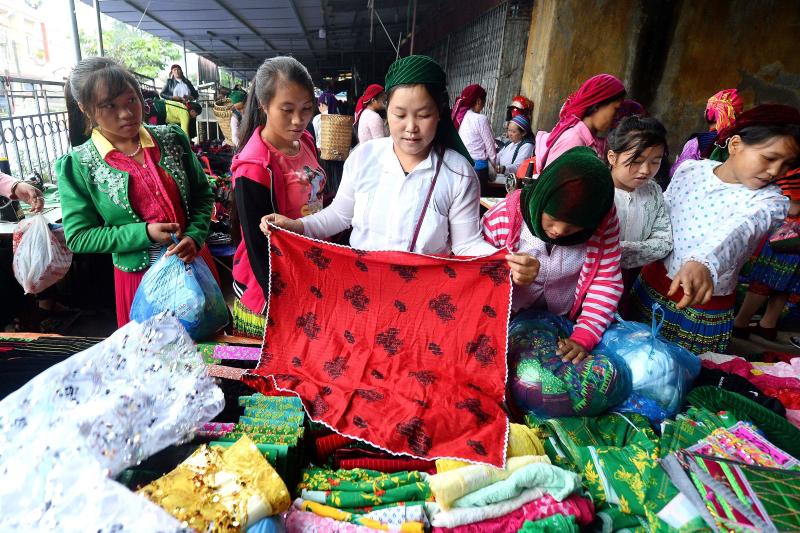When Love Turns into a Lucrative Side Hustle
Meet Zhou Xinsen, a 41‑year‑old divorcee who’s quietly turning a lonely future into a payday. He joined the bustling queue of Chinese men hunting for affordable, speedy matches abroad—specifically Vietnamese brides.
The Sex‑Gap Shuffle
- China’s one‑child policy — coupled with a tendency for families to pick boys over girls — produced a serious short‑age for women.
- Wielding titles like “bare branches,” some single guys from village backwaters feel the mounting pressure to get married and keep the family line flowing.
Zhou’s own reality? “It’s a nightmare to find a Chinese wife at my age,” he says, adding that time now gets bought with cash. He spent nearly US$20,000 (S$27,000) on a 26‑year‑old Vietnamese bride and flew her over to Jiangsu province.
From Matchmaking to Money Making
Satisfied that he solved his own romance puzzle, Zhou swapped the “wife‑search” for a business venture. He now runs a matchmaking service that extracts a slice from China’s multi‑million‑dollar deal in overseas brides.
- He offers a “connect” service for about 120,000 yuan (S$24,000) — check out the site for glossy photos of women aged 20‑35 all lined up, ready for matrimony.
- In fact, It’s profitable—though he’s tight‑fisted about how much he’s raking in.
Behind the glossy images, a portion of the proceeds feeds communities back in the Mekong region—helping families in Cambodia, Laos, Vietnam, and Myanmar who may feel like they’re trading village poverty for a quieter life in the nooks of rural China.
The Price of Love
Why the gap? Many Chinese single men are older, divorced, disabled or simply lack the disposable cash for the tall‑order “bride price.” Prices have, in some regions, put the downswing around US$22,000 to US$29,000.
But the kiss‑off can be heartbreak. Zhou admits that sometimes the folks on the other side feel double‑crossed about what they’re signing up for. To keep the relationships from falling apart, he sends a monthly remittance—US$175—to his bride’s family.
“It may sound nothing to us, but for them it’s a life‑saver,” he chuckles. In a world where love can be a dollar sign, maybe a little kindness gets everyone one step closer to peace.

When Marriage Becomes a Game of Numbers
Picture this: a bustling Sunday market in Meo Vac, Vietnam, where women do their shopping in the shade of towering mountains. It’s a place where families still whisper the old story—a tale about bride trafficking that’s harder to ignore than a neon sign.
What the Experts Are Saying
Professor Jiang Quanbao at Xi’an Jiaotong University doesn’t mince words about the pressure: “Marriage isn’t just a personal affair—it’s a whole family story, especially for the parents.” When a son hangs up his single flag and remains husked, the whole village starts wondering, “Did we just lose our face?”
The Clash Between City Life and Village Expectations
- City girls have apps, careers, and pop‑culture playlists; they’re clutching their single status like a badge of honor.
- In the countryside, the countdown to wedlock feels more like a ticking bomb—ignore it and you’re out of the game.
- The result? A morbid rush to find brides at the lowest cost.
The Dark Side of “Buying a Bride”
This isn’t just a symbolic transaction. Rescue groups across the Mekong witness the terrifying reality: teenagers and women from neighboring nations are stolen, swindled, or shoved into marriages—often without a referral—they’re suddenly “sold” at markets, turning a human being into a commodity.
Jiang calls it “a hopeless choice.” Imagine your family clutching a pawn‑shop receipt to your future: that’s the absurdity. And it’s not only happening in the far‑off provinces of Henan or Shandong. The brewing storm is sweeping eastward, catching more and more victims.
Law, Laxity, and the Profit Playground
Under current Chinese statutes, trafficking can land a trafficker behind bars for 5–10 years. Still, the market’s flames keep heating up. Critics argue this law is like a rusty lock—easy to crack with a single pull.
Mimi Vu, a war‑saver from the Pacific Links Foundation in Vietnam, gets the crunch: “Traffickers make a killing, and nobody’s stopping them.” The profit margin? Huge. The demand? Unabashedly real.
Bottom Line
When society turns marriage into a check‑book, it’s the most dangerous thing you can trade in. As more villages set their sights on bride “bargains,” the hope is that one day the conversation shifts from how to buy a future spouse to how to empower a future!

Missing Daughter Sparks a New Hope
Vu Thi Dinh, a devoted Vietnamese mother, is on a relentless quest for her teenaged daughter, Dua. The little girl vanished while strolling through the fields near her home in Meo Vac, leaving her mom in a frenzy of worry and determination.
The Wider Brushstroke of China’s Bride Market
China’s one‑child rule turned into a two‑child policy back in 2016, but experts say that a swell in the number of marital‑age women might still be decades away. That means the bride trade—where women cross borders to find spouses—will probably keep on moving for quite a while.
“It’s a Public Service”—the Irony of the System
Zhou, one of the brokers, talks about his job with a proud pin of “public service”—yet he often faces a reality where money twists motives and the outcomes aren’t always sweet for Chinese men.
The Rumblings on Social Media
- “There’s a lot of fraud in this industry,” shouted a Weibo user. “The government should step in.”
- A man in Hubei later told the Chutian Metropolis Daily that he paid $8,700 for a Vietnamese bride who left him in three months, aborting their baby and looking for another husband.
- That same man added, “Now I’m left with nothing but a laughing‑stock reputation in my village.”
So, from a bustling mom in Vietnam searching for her missing child to a broader look at the tangled web of bride trafficking, these stories paint a sobering picture. Yet they also remind us that behind every headline is a real human story—full of fear, hope, and sometimes, a little humor to make it more relatable.




